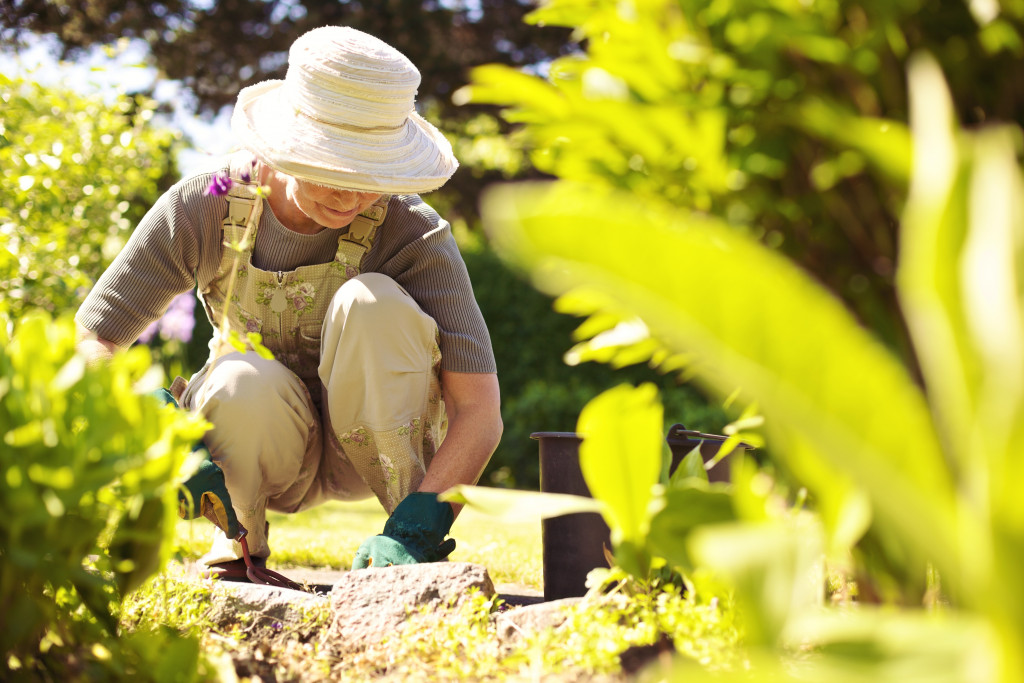Whether your elderly loved one is a beginner or a seasoned gardener, there are many ways to make gardening more accessible and efficient. Having an efficient garden that is easy to manage can help ensure that your elderly loved one enjoys the process of gardening while also feeling accomplished and proud of their work. Here are some tips on creating an efficient garden for your elderly loved one.
1. Choose Easily Accessible Gardening Tools
Gardening tools come in all shapes and sizes, but it’s important to choose tools that are easy for your elderly loved one to use. For example, ergonomic handles can reduce hand strain, making it easier for them to handle tools such as shovels and rakes. Long-handled tools can be helpful, so they do not have to bend over as much when tending to their garden. Additionally, lightweight gardening tools will make it easier for them to move around the space without getting fatigued quickly.
You can find many ergonomic and long-handled tools in garden centers or online stores. These tools are an investment that could help make gardening easier and more enjoyable for your elderly loved one. Just make sure to choose durable tools suited for the type of gardening they plan to do. You can also purchase accessories such as garden kneelers or wheelbarrows to make gardening a more comfortable experience
2. Create an Accessible Storage Space
Many gardeners choose to store their tools outside, but for elderly gardeners, it’s important to create an accessible storage space indoors. An indoor tool shed or storage area can protect tools from weather-related damage and make them more accessible for your elderly loved one. Additionally, consider installing shelves at an appropriate height to make it easier for your elderly loved one to reach and store their tools.
You may build a shed yourself or purchase a ready-made shed from retailers. If you choose to build one, many resources on how to build a shed online can help you. If you have an existing shed, it may be necessary to make modifications, such as adding shelves or railings to make it easier for your elderly loved one to use. This could help them safely and quickly store their tools with ease.

3. Select Low-Maintenance Plants
When choosing plants for your elderly loved one’s garden, opt for low-maintenance varieties that require minimal effort and attention. Herbs are ideal because they grow quickly and do not require a lot of care once planted. Vegetables such as tomatoes, peppers, beans, squash, cucumbers, and greens are also good choices since they thrive in most climates with minimal effort from the gardener.
If you have room in the garden, consider adding sunflowers or other flowering plants – these will attract butterflies and provide added visual interest without needing much care or attention from the gardener. You may also want to consider container gardening, which can be done on a patio or balcony and requires less maintenance than a traditional garden. Many plants can be grown in containers, an excellent option for elderly gardeners who may not have the energy to tend to a full-scale garden.
4. Create Raised Beds
Raised beds can be beneficial since they reduce bending over or kneeling down during gardening activities such as weeding or planting seeds, thus reducing strain on your elderly loved one’s back and joints. Raised beds also allow you to control soil quality by providing organic material such as compost to help enhance plant growth without having to amend the existing soil beneath it, which may be compacted or hard due to age or foot traffic in the area surrounding it.
With raised beds, you can also control pests more easily by using barriers like netting or fencing to prevent animals from entering into the grassy areas below it where pests may be living. You can find raised bed kits at most home improvement stores, or you can build your own from untreated wood or other materials. This easy project could be helpful for elderly gardeners who want to increase their production but need assistance in making it happen.
For an elderly person who loves gardening but is no longer able to do strenuous labor outdoors, creating an efficient garden is key! By selecting low-maintenance plants, providing easy-access tools with ergonomic handles and easy storage, and creating raised beds with barriers against pests, you are ensuring that your elderly loved one will still get joy out of gardening. You are also helping them avoid unnecessary strain on their bodies due to strenuous labor outdoors! With these tips in mind, you should have no problem creating an efficient garden tailored specifically for them!

